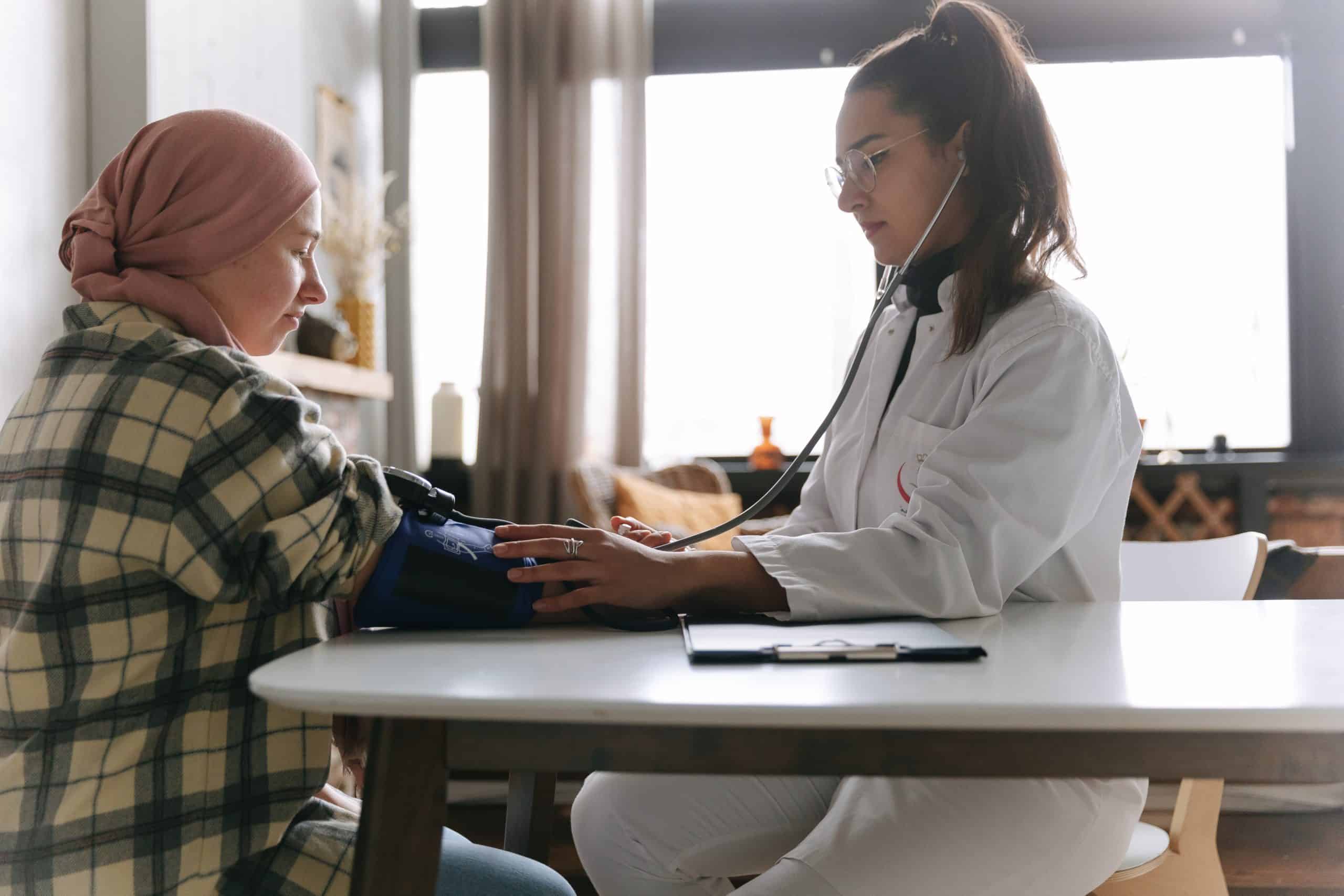What To Expect When Caring For Someone Who Has Had A Stroke (CVA)
Pegasus skilled in-home caregivers in Glendora and elsewhere provide services to individuals of all ages. They know how to help their clients live safely at home regardless of their medical condition. Career home health care nurses explain what to expect when caring for someone who has had a stroke.
As a home healthcare nurse, your assistance will usually be post-discharge. In most cases, family caregivers are involved. Education may be an essential part of your services.
Statistically, a person who has had a stroke is at high risk for a second one. Patient and family caregiver vigilance is crucial, especially during the first weeks post-discharge. Ensure that everyone is familiar with the symptoms of a stroke.
Consider printing a F.A.S.T. poster and placing it in a conspicuous area. Emphasize the necessity of getting immediate help.
Other stroke symptoms can include the sudden onset of:
- Confusion
- Loss of balance
- Numbness
- Rigidity
- Severe headache
- Unconsciousness or falling into a coma
- Vision difficulties
- Vomiting
Immediate medical attention is crucial.
Getting treatment is often stressful. Your patient and family members may not have fully understood everything they were told. Or they may have forgotten it in the turmoil of how their lives are changed.
There Is More Than One Kind Of A Cerebrovascular Accident (CVA)
Explain to them that there’s more than one kind of CVA, or stroke. All types damage the brain to a greater or lesser extent because blood flow to the brain cells is impaired. The types of strokes are:
- Hemorrhagic: also known as an intracerebral hemorrhage (ICH). It means an artery has ruptured, releasing blood into the brain rather than the cells. It may be either:
- Intracranial, if the rupture is inside the brain; or
- Subarachnoid, if the rupture is between the brain and the membranes enclosing it.
- Ischemic: more than 80% of strokes are ischemic. They are caused by an obstruction, such as a clot, cutting off blood flow. It may be:
- Embolic, if the obstructed blood vessel is inside the brain. If the obstruction is deep within the brain beneath the cortex, it is called a lacunar stroke; or
- Thrombotic, if the obstruction developed in blood vessels outside the brain.
- Transient Ischemic Attack (TIA): also known as a mini-stroke. It’s a temporary blockage, and symptoms are brief. In about one-third of the incidents, a TIA precedes a full stroke.
When cells don’t get the correct amount of blood, they become oxygen-starved. With no oxygen, cells quickly die. The individual loses function in the part of the body controlled by those brain cells.
Stroke Complications Vary
Complications of a stroke can be temporary or permanent. Your patient may experience varying levels of difficulty with:
- Cognition
- Behavioral and emotional problems
- Difficulty swallowing, including dysphagia
- Movement, including weakened muscles and loss of coordination
- Self-care
- Speech, including aphasia
- Pain
- Paralysis
Some of your patients may lose their ability to feel heat or cold. Others aren’t able to feel pressure against their skin. The loss of sensation can result in serious injuries.
Potentially less-disabling complications include:
- Brain edema
- Contracture of limbs
- Deep venous thrombosis (DVT)
- Depression
- Loss of bladder or bowel control
- Pneumonia, especially aspiration pneumonia in patients with dysphagia
- Pressure sores
- Seizures or muscle spasms
- Urinary tract infections
These conditions are often treatable. Managing the treatment will be an essential aspect of your home care.
Recovery From A CVA Is Multi-Faceted
Most losses depend on the severity of the stroke and how quickly the individual received treatment. Some brain cells may only have been damaged rather than destroyed. If blood flow is resumed, those cells can eventually recover.
Other functions can be restored by changes in how an individual does things. Sometimes other parts of the brain will take over the functions previously performed by the destroyed cells.
Rehabilitation can help the damaged cells recover. Stroke patients may be able to regain some of their abilities. The goal is to achieve as much independence as possible.
Your Pegasus team includes a roster of specialists to aid you. You have access to:
- Counselors
- Dietitians
- Neurologists
- Neuropsychologists
- Physical, occupational, and speech therapists
- Physicians
- Social workers
You will need to implement fall prevention measures as patients become ambulatory.
Family Caregivers Help With Stroke Recovery
Rehabilitation can be slow and daunting. Families can help encourage and motivate their loved one. They can also help patients comply with preventive measures to avoid a second stroke.
Ensure that family caregivers have realistic expectations of the loved one’s recovery. You may need to use your networking skills to assist them in getting needed equipment and supplies. Help families get counseling for themselves if necessary.
Many family members have other obligations. Explain how important it is to take care of themselves. Be sure to offer respite care when you notice a family caregiver becoming overwhelmed.
Pegasus is a licensed Home Care Organization and a Joint Commission Accredited Home Health Care organization. Our skilled in-home caregivers in Glendora and our other locations tailor their services to fit each client. Career home health care nurses understand the level of assistance needed by stroke patients.

